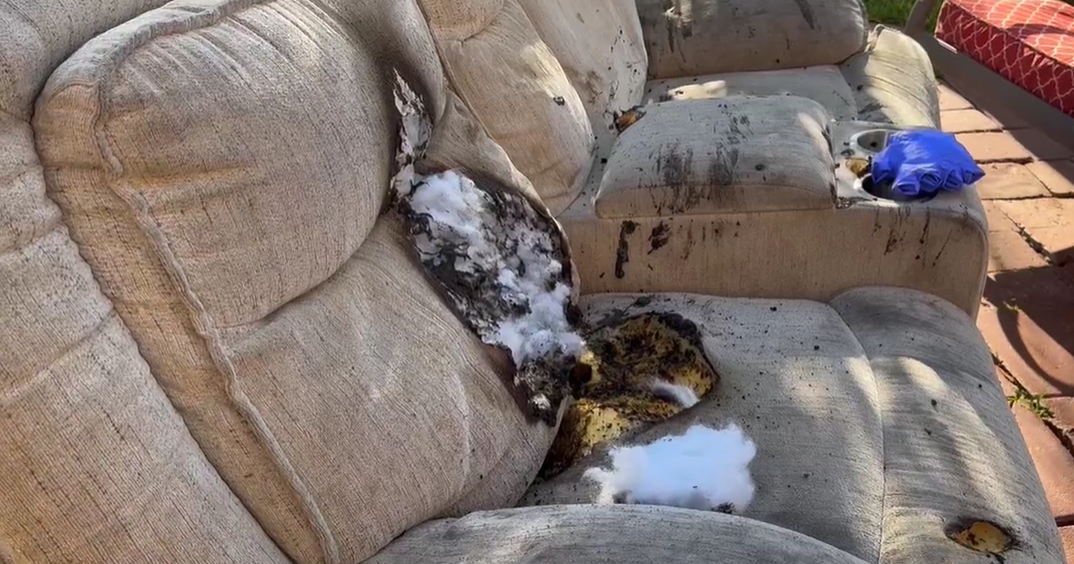CBS4's Frances Wang Brings Awareness To Skin Condition In Order To Help Others
MIAMI (CBSMiami) - It's not often television news anchors become the story, but after developing a skin condition called perioral dermatitis earlier this year and hiding it for months, CBS4's Frances Wang decided to share what was happening on social media hoping to spread awareness.
She also wanted to share it because she knew many people deal with the physical and emotional pain of skin conditions, and wanted people to know they're not alone.
The response she received was overwhelming "in the best way," she said. The more national outlets picked up her story, the more people from all over the world reached out to connect, vent, or just talk.
She says sharing her story was "freeing and instrumental in her healing - both physically and emotionally."
Frances took some time off in October and is now happy to be back at CBS Miami.
Thanks to a support group on Facebook, she was able to connect in-person with three incredible women right here in South Florida who are undergoing similar situations.
Andi Cisneros, 28, of Kendall works in insurance. Jenny Santiago, 36, of Pembroke Pines works in the cruise line industry and has 3 children. Alona DiPaolo works for the Broward County government and has a 10-year-old son.
These three South Florida women don't know each other, but they're all connected through the skin condition called 'perioral dermatitis.'
In Alona's case, it's her son who is suffering.
Dr. Robert Kirsner, chair of the University of Miami's Phillip Frost Department of Dermatology, calls 'perioral dermatitis' a cousin of rosacea. The condition presents itself differently, depending on the person, but board-certified dermatologists should be able to recognize it right away.
"You usually get a rash. Sometimes it's red bumps, sometimes it's a scaly rash around the openings of the face," explained Dr. Kirsner. "It's called perioral because it's usually around the mouth. It can also be around the nose or the eyes and it can go on other parts of the face as well, but it usually starts [around the mouth.]
Perioral dermatitis can be caused by anything from allergies to hormones. Even household items like fluoride toothpaste have been blamed as the culprit.
The most common cause of perioral dermatitis is steroids.
"Most people would link [perioral dermatitis] to steroid usage of some sort, often topical," said Dr. Kirsner. "You're giving topical steroids, which initially help, but then perpetuates the condition and makes it worse."
WATCH THE ENTIRE UNEDITED INTERVIEW WITH DR. KIRSNER
That's exactly what happened with Alona's 10-year-old-son. Topical steroids prescribed for his eczema triggered perioral dermatitis.
In Andi's case, she believes her condition was stress-induced, but does worry that Flonase, a steroid nasal spray, contributed to the problem.
"I never had skin problems [growing up], but then it was rosacea, adult acne, and now this thing that wouldn't go away. I was extremely self-conscious. It just sucked," said Andi. "I had a couple of weddings. I'd look at myself in the mirror [and] seeing everything was really hard. I think when your face is clear, you feel prettier, you feel more productive in all aspects of your life."
Dermatologists will typically prescribe an antibiotic and some sort of topical for perioral dermatitis. For Andi, that solution worked in about 3 weeks.
"I am paranoid. I don't want it to come back and if it does, I feel it'll come back ten times worse," said Andi. "I'd rather have rosacea and acne, they'll go away [but] I feel this just wouldn't leave."
For Jenny, treatment wasn't as easy. It took a lot of trial and error, and the condition came during her pregnancy.
"Anything I thought I could fix or cover it with because I was so self-conscious, thinking everyone's looking at me," said Jenny. "Here I was in a very healthy pregnancy with [my 3rd baby] that we wanted, and I was crying because I had spots all over my face."
Many people who suffer from perioral dermatitis estimate they spend thousands on tests and treatments, a lot of which may not be covered by insurance.
"Everyone's I guess treatment looks different because I tried I feel like everything. I was ordering things online that [people] were recommending that they didn't sell in the states," said Jenny. "I spent my maternity leave trying to get samples of what would fix it."
After Jenny had her baby, the condition went away. However, her baby boy is now suffering from eczema, and she worries she passed that along to him.
For Alona, even finding a dermatologist for her son is hard. She is about to see her sixth.
"I still haven't found [a dermatologist] I can trust. I'm at the point where I understand why people are skeptical about the medical industry and dermatologists in South Florida," said Alona. "As a parent, you want to make sure people are seeing your child for who they are and not what's wrong with his face. It's frustrating, but at the same time I know it can be something [more] terrible."
Dr. Loretta Ciraldo, a board-certified dermatologist in Aventura with more than 40 years of experience, is empathetic to Alona's frustrations.
"Frankly, there are many physicians where there's more of a priority on putting in [Botox], fillers, lasering people and the medical aspect of dermatology is sometimes a little more difficult to have addressed by your doctor," said Dr. Ciraldo.
Dr. Ciraldo adds that especially with social media and the high standard of beauty in South Florida, skin disease can have a great emotional impact on people.
"We can really be traumatized by it," said Dr. Ciraldo. "Stress is a very big factor. The more stressed out we are by our appearance, the more delayed our clearing."
WATCH THE UNEDITED INTERVIEW WITH DR. CIRALDO
Dr. Kirsner believes the reason many people aren't aware of perioral dermatitis is because it's not as talked about or easily recognized as acne.
"It's not as common as acne, but dermatologists see it routinely," said Dr. Kirsner. "It affects people's appearance, and they don't want to talk about it, they hide it, put makeup on, try to do a thousand different treatments.
Dr. Kirsner adds that there is still a lot more that needs to be learned about this condition.
"We don't know what always causes it," said Dr. Kirsner.






